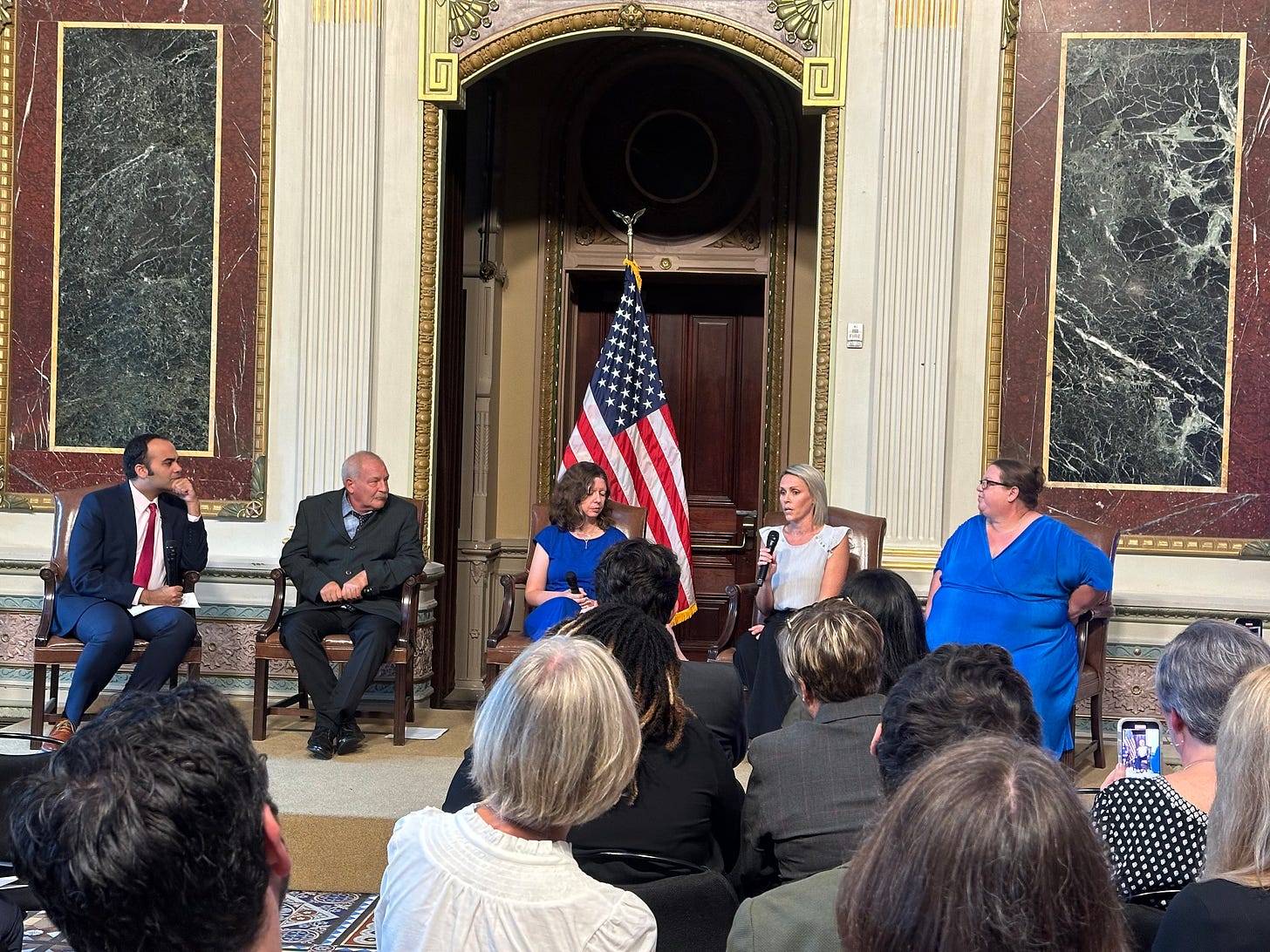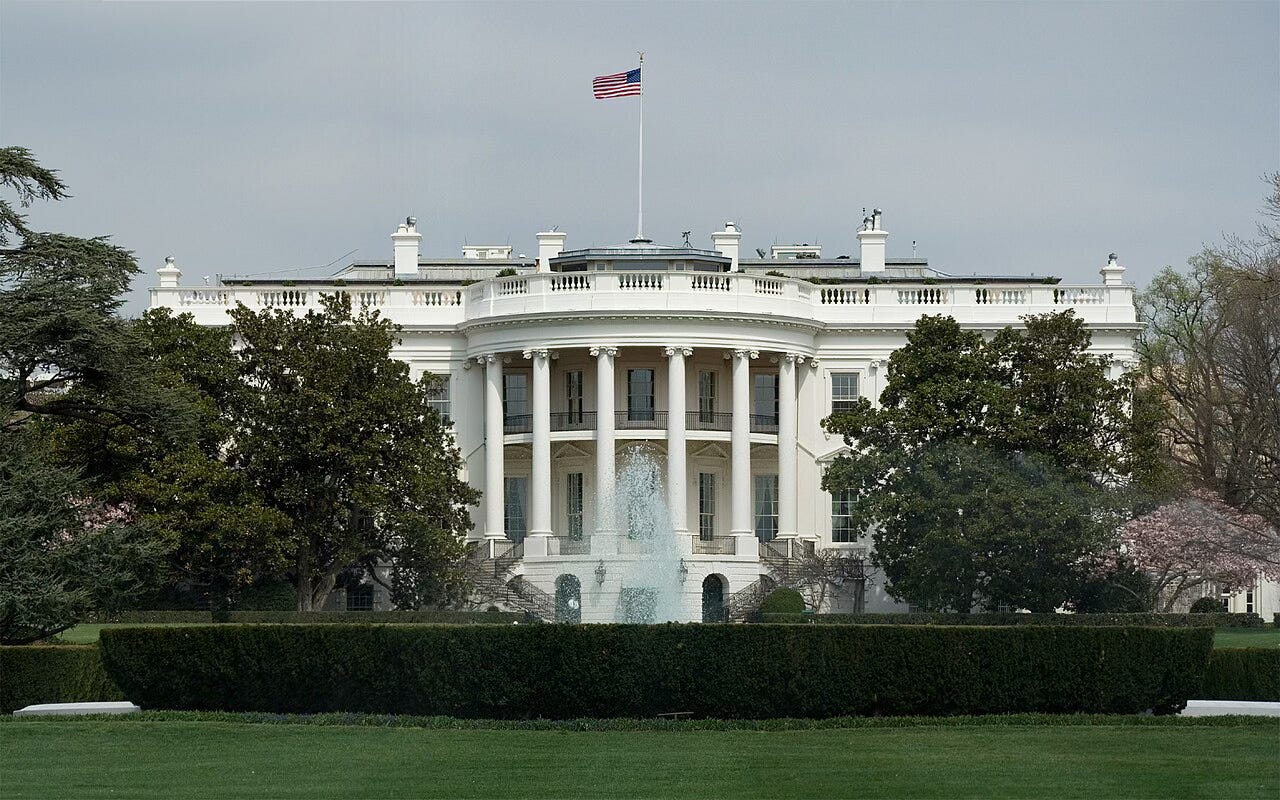Yesterday, we had the honor of being at the White House as Rohit Chopra, director of the Consumer Financial Protection Bureau (CFPB), and Lael Brainard, director of the National Economic Council (NEC,) laid out important new steps the Biden administration, led by Vice President Harris, are taking to tackle the growing medical debt crisis in this country.
It is a crisis that impacts 4 in 10 adults and more than 100 million people in this country.
We’ll get to what the administration announced in a minute. But what struck us most from the White House meeting was not what was announced but the powerful stories we heard in the room – and honestly that we hear all the time – hat fueled these policy changes.
It was a reminder that this is not some abstract policy debate but a real world crisis so many people face every day.
To drive home the point that medical debt can and often does put millions of American families in financial jeopardy, Chopra moderated a panel comprising four people from across the country, most of whom had health insurance, who shared their stories. Among them was Lindsay of Florida. A small business owner and single mother, Lindsay has more than $50,000 in medical debt after her insurance company denied coverage for life saving brain surgery for her young child. She has had to hire an attorney to help her fight the parties involved in saddling her with that crippling debt.

Sadly, Lindsay’s story is not unique. There are millions of Americans like her.
That’s why events like yesterday’s are so important and why the actions announced by the administration – and others under consideration – are so vital.
We learned at the White House event that:
CFPB had released an Advisory Opinion on improper medical debt collections. The Advisory Opinion clarifies the responsibilities of debt collectors to confirm that debts are accurate, valid, and substantiated before engaging in collection actions. The CFPB also stated that they will ensure fairness and increase transparency by cracking down on debt collectors that collect on debt that is not owed by patients.
CFPB had also released a Consumer Advisory that explained to consumers what actions they can take when they suspect that they have been improperly billed or if they have had improper or illegal collection actions taken against them.
The Department of Defense has proposed a rule aimed at providing financial relief for civilians receiving medical care at military medical treatment facilities (MTFs). If finalized as proposed, this rule would implement fee reductions through a sliding scale discount program as well as catastrophic cap waivers.
CFPB released a blog post highlighting billing issues that occur when non-profit hospitals fail to provide financial assistance. Under the law, tax-exempt hospitals are required to offer financial assistance to help offset health care costs for low-income patients.
The Department of Health and Human Services is collecting evidence and data to inform future actions to address the burden of medical debt. For the first time, the Center for Medicare and Medicaid Services added new questions on medical debt to their Medicare Current Beneficiary Survey (MCBS).
The momentum toward tackling this crisis from the administration has been matched on Capitol HIll, too, with various bills that have been introduced to address medical debt.
These efforts in Congress and the administration are important because we must not only bring relief to those impacted by medical debt but we must also tackle the structural problems in our health care system that allowed this crisis to balloon – including health insurance companies that make most Americans pay thousands of dollars out of their own pockets before they’ll pay a dime.
Yesterday was an important day in the fight to alleviate the burden of medical debt, but much more can and must be done to tackle this crisis.







Everything but what's really needed—money and a crackdown on the insurance companies killing people for profit.
Are Biden and Harris actually going to talk about changing our horrible Private For Profit Healthcare System? I doubt it. No other country in the world has a healthcare system like the US has. Our healthcare system is a disgrace. I cannot imagine how I would feel if my family had to deal with $50,000 of medical debt.